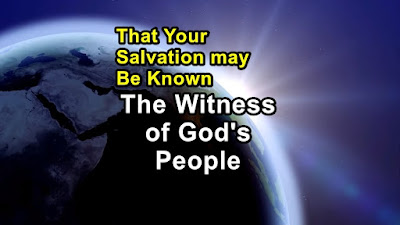Wise Praise and Wise Counsel
Text: Exodus 18:1–27
Exodus 18 is a turning point in Israel’s history. They have been delivered from Egypt, crossed the Red Sea, seen God’s provision of food and water in the wilderness—and now, in this chapter, two crucial moments take place. First, Jethro, Moses’ father-in-law, comes to visit and hears about the mighty acts of God. Second, Jethro gives Moses wise counsel that changes the way leadership is carried out among God’s people. In this chapter, we learn about praising God before others and humbly accepting godly advice.
Jethro Praises God for His Mighty Acts (Exodus 18:1–12)
When Jethro arrives, Moses tells him all that the Lord has done to Pharaoh and Egypt, and how God has delivered His people. Jethro’s reaction is immediate—he praises the Lord, saying, “Now I know that the Lord is greater than all gods” (v. 11).
This is more than a polite acknowledgment; it’s a declaration of faith and recognition of God’s supremacy. It shows us something important: sharing what God has done is one of the simplest and most powerful ways to witness to others. Moses didn’t have to persuade Jethro with arguments—he simply told the story of God’s power and faithfulness.
For us, this means we should not underestimate the impact of telling others how God has worked in our lives. Your testimony might be the very thing that turns someone’s heart toward the Lord.
Jethro’s Wise Counsel to Moses (Exodus 18:13–23)
The next day, Jethro watches as Moses spends the entire day judging the people’s disputes. Moses is exhausted, and the people are waiting all day for their cases to be heard. Jethro speaks up and says, “What you are doing is not good… You will surely wear yourselves out” (vv. 17–18).
Jethro then suggests a better system: Moses should continue to teach the people God’s laws and handle the most difficult cases, but he should appoint capable, God-fearing men to judge the smaller matters. This was more than just good organizational advice—it was a critical moment in Israel’s development. It established a delegated system of leadership that allowed the nation to function more efficiently and reduced the burden on one person.
Moses Accepts the Counsel (Exodus 18:24–27)
The beauty of this passage is that Moses doesn’t let pride get in the way. He listens to Jethro and implements the plan. This shows humility and wisdom. Even though Moses was God’s chosen leader and prophet, he still recognized that good advice—even from a human source—was worth following when it aligned with God’s purposes.
For us, this is a reminder that we are not called to do everything ourselves. Whether in ministry, family, or work, God often provides help through the wisdom of others. Accepting that help is not a sign of weakness, but of maturity and trust in God’s provision.
Lessons for Us
Exodus 18 gives us two timeless lessons. First, never underestimate the power of sharing what God has done—it can lead others to praise Him. Second, be humble enough to receive wise counsel and not try to carry every burden alone.
Just as Moses witnessed to Jethro and then accepted Jethro’s advice, we too can bless others with our testimony and grow by listening to godly wisdom. In doing so, we strengthen not only our own walk with God but also the community around us.



